Russian movies have influenced generations of China audiences, but it hasn’t broken 100 million?

Special feature of 1905 film network In the past weekend, four new foreign films were released together.
Among them, there are not only the national animation IP "Detective Conan" from Japan, the popular thriller and childhood memories from the United States, but also a Russian suspense film.
As the name implies, the film tells the story of three famous magicians, in the process of magic performance, the female assistant disappears into the prop water tank out of thin air, and the murderer behind the scenes takes the female assistant’s life as a threat to control the whole magic performance, so the three brothers have to find out the killer’s frightening course while performing.
Up to now, "Kill the Magician" has been released for four days, and the box office has just exceeded one million, and the results are very bleak. The audience’s comments are also mixed.

Some people think that the film has both the double stimulation of magic and suspense, plus the inversion of layers, which is quite enjoyable; However, some critics pointed out that some of the logic of the bridge can’t stand scrutiny, the villain’s motives are far-fetched, and the story is old-fashioned.

Whether it is word of mouth or box office, "Kill the Magician" has a big gap compared with a series of Russian imported films that were familiar before.
For a long time, China audiences have a special complex for Russian films, and the China market has frequently become the largest ticket warehouse for Russian films overseas. However, there are still no explosions of Russian films with box office exceeding 100 million. What kind of Russian movies do China audiences like, and how will Russian movies go further in the China market?
01.Theme types are increasingly diverse. Sports war animation becomes popular
Kill the Magician, as a suspense genre, is rare in Russian imported films in the past. Throughout the past ten years, Russian movies landing on the mainland screen, action, war, sports and animation movies are still the main types.
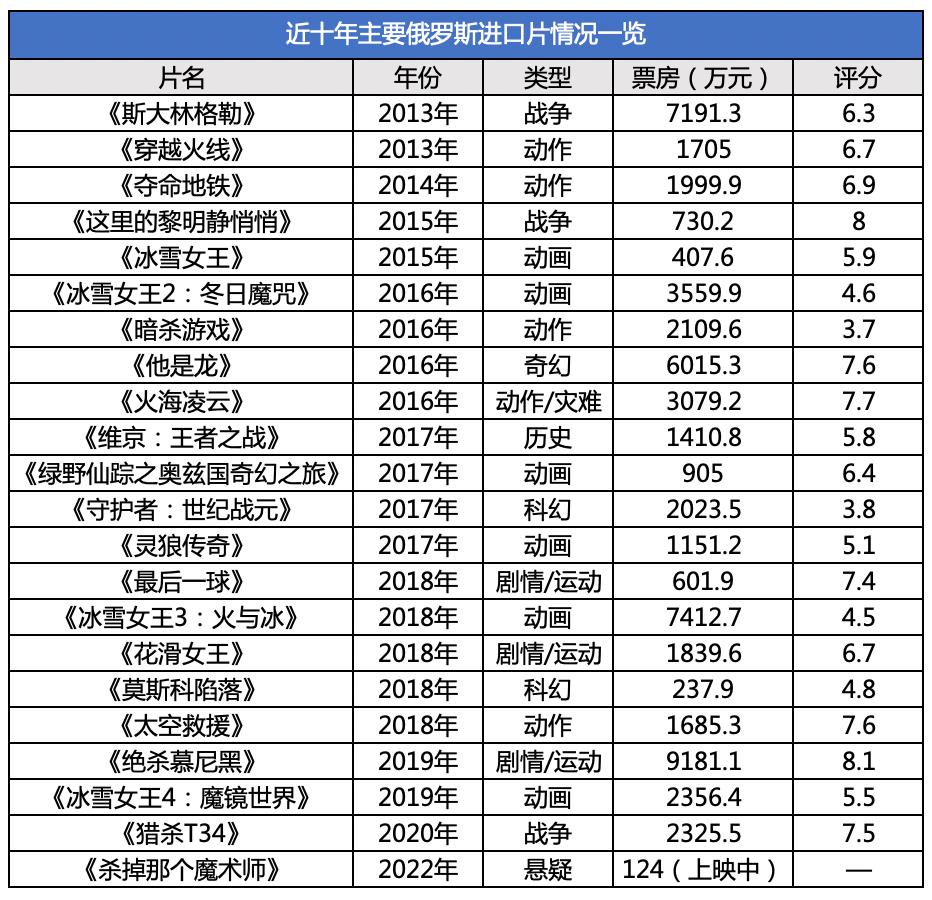
In August 2006, the Russian box office champion of the year, an anti-terrorism action film adapted from the 2002 "Hostage Incident in Moscow Grand Theatre", was released in China, which opened a new chapter for Russian commercial films to enter the mainland market.
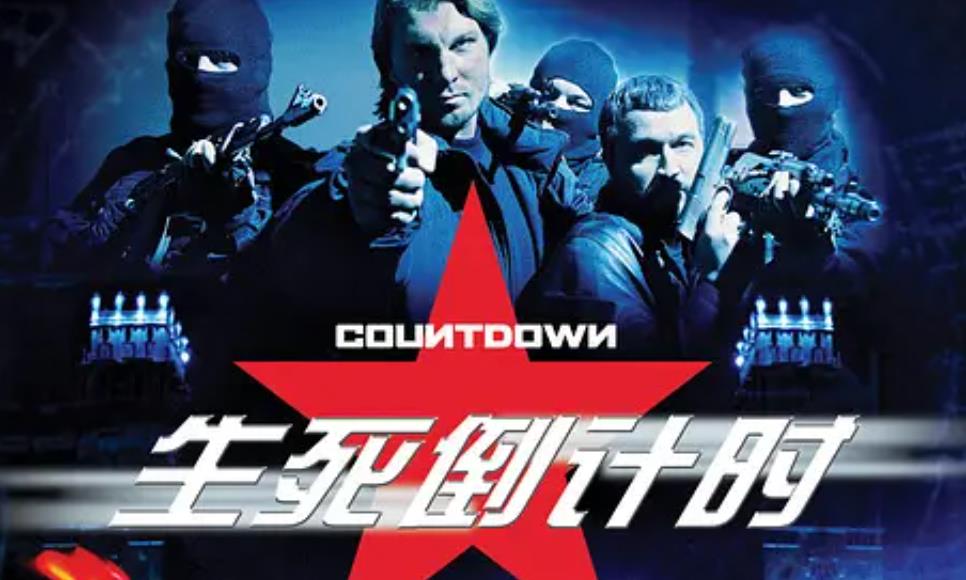
Followed by, released in 2008, 2009, 2013, 2014 and 2016 are all action movies.
Although there are a large number of action movies, most of them can reach tens of millions at the box office, but their word of mouth is uneven. There are both high-scoring masterpieces such as "Ling Yun in the Fire" and works criticized by the audience such as "Assassination Game", but the overall performance is average.
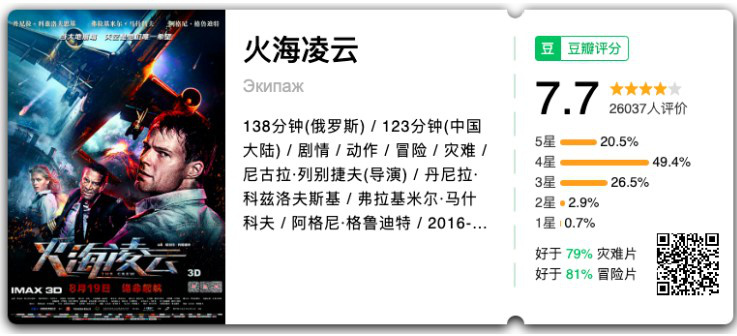
In addition, historical war films have always been the dominant type of Russian films. In 2013, Russia’s first IMAX-3D blockbuster, a war film showing the battle of Stalingrad, was released simultaneously in China and Russia, which achieved 71.913 million in one fell swoop and set a box office record.

The film T34, also based on the Great Patriotic War of the former Soviet Union, once became a "little dark horse" with a box office of 23.26 million and a high score of 7.5.
In contrast, the 2015 edition was not so lucky. Although the score was as high as 8.0, the box office failed to break through 10 million. Epic war blockbusters were treated as "two worlds of ice and fire" in the Chinese and Russian markets, with only 14.12 million recorded.
In 2018, with the east wind of the Winter Olympics and the World Cup in Russia, Russian sports films entered the mainland market one after another.
In 2019, the film "Dead Munich", which truly restored the US-Soviet men’s basketball competition in the 1972 Munich Olympic Games, was born, and it was countered all the way, and finally set a new box office record for Russian films in the mainland market with 91.81 million yuan.

Not only live-action movies, but also Russian animation has always been a "mysterious" force that cannot be ignored. Especially in the series, all four films were released in China, with a total box office of 138 million.

In recent years, with the development of Russian film industry and the deepening of exchanges between the two countries, the types and themes of imported Russian films are more diverse.
For example, the sci-fi visual blockbuster "The Guardian of the Century", the fantasy "God Works" and "He is a Dragon", and the heavy industry aerospace movies have all made domestic audiences shine at the moment and constantly refreshed our understanding of Russian movies.
02.High reputation and difficulty in getting out of the circle There are more possibilities for Sino-Russian film cooperation.
From the above table, it is not difficult to see that there are many Russian films introduced to the mainland with high scores and excellent works, but while waiting for small language films to create box office miracles, why have Russian films failed to break through 100 million?
On the one hand, Chinese and Russian audiences have different tastes in watching movies, and Russian local blockbuster films often encounter acclimatization after being introduced.
Viking: The Battle of the Kings and the sci-fi blockbuster "The Fall of Moscow", which are known as the "Russian 2017 First Divine Film", are typical examples. Both of them once set off a movie-watching craze in Russian mainland, but they were embarrassed and cold in China because of cultural background differences and film quality problems.
On the other hand, Indian films are good at entertainment and criticism, while Thai films focus on youth films. Compared with them, "Made in Russia" seems to lack differentiation advantages.
In recent years, Russia attaches great importance to the development of film industry, and the works imported from China are mainly "heavy industry" visual action films. However, under the heavy attack of Hollywood blockbusters and domestic visual effects films, it is naturally difficult for the audience to interest in these Russian blockbusters, and they will think that they are shoddy and the quality is worrying.
For example, what was released in 2017 was regarded as a low-profile superhero blockbuster, with a score of only 3.8 points, and the box office also stopped at the 20 million mark.

It is true that the great differences in culture and language have set natural barriers for the spread of small-language films. Looking back on past successful cases, it is not difficult to see that if you want to counterattack and become an explosion, excellent word-of-mouth and universal emotions are indispensable.
This is also an important factor for Munich to set a new box office record. The film is not only ranked first in Russian imported films with a score of 8.1, but also its indomitable and never-say-die sportsmanship transcends the boundaries of language and country, which has aroused widespread resonance among China audiences.

As a traditional film power, there is no shortage of high-quality film and television works in Russia. How to adjust the quality and positioning of imported films, and choose the appropriate schedule and announcement strategy will become the key to further development of Russian films in the China market.
In addition to "bringing in" and "going out", under the impetus of the "Belt and Road Initiative", the film cooperation between China and Russia is also developing in a long-term and multi-level way. A series of Russian films went to Russia for filming, and various Sino-Russian film co-production projects were also in progress.
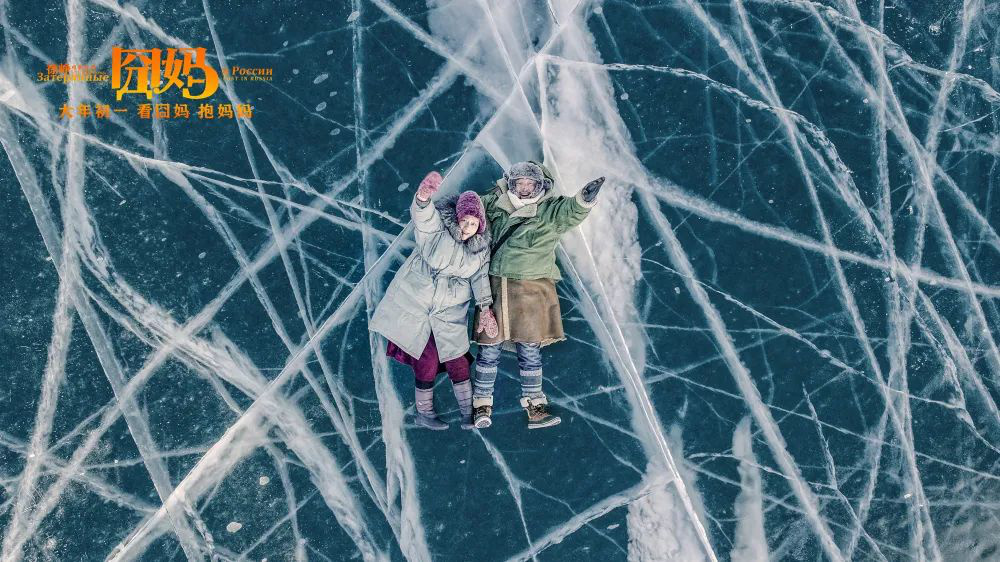
In the early years, Chinese and Russian co-productions were directed, starring and so on.
In recent years, historical films about China and Russia’s joint fight against Japanese fascism have been well received; Comedy films that show the wits and wits of "Russian father-in-law" and "Shanghai son-in-law" broaden the types of co-productions. Regarding the co-production between China and Russia, there is still a broader imagination in the future.
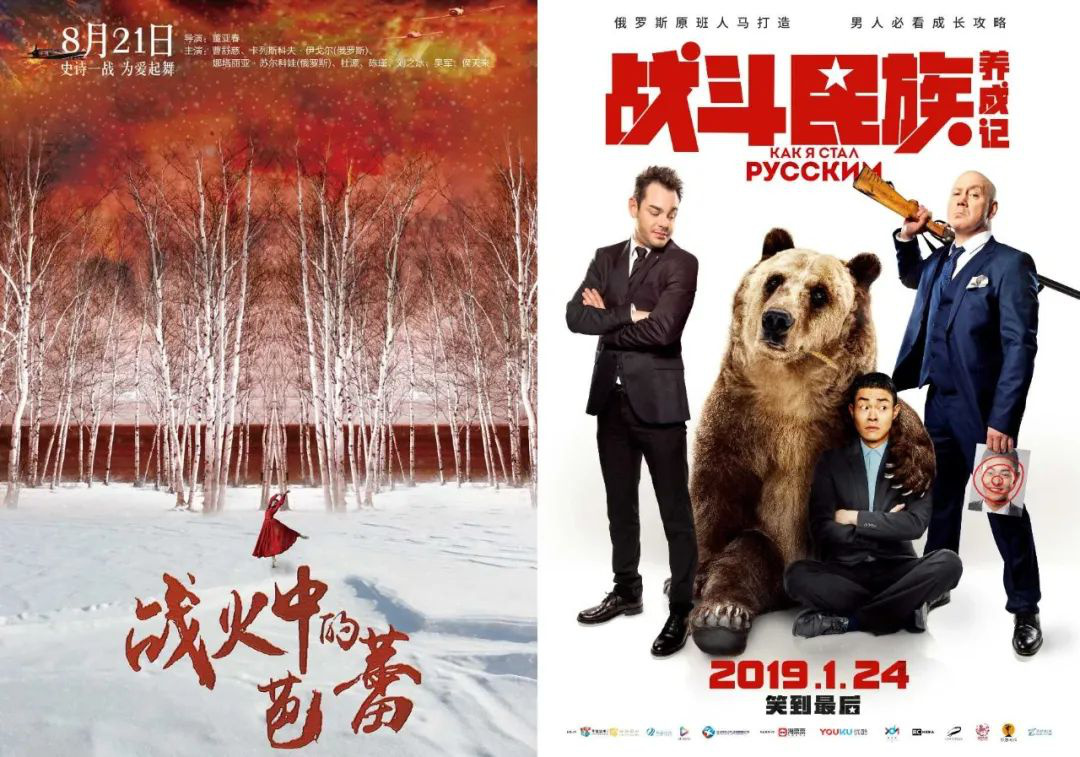
Once upon a time, classic Soviet films such as "The Dawn is Silent Here" have influenced generations of Russian audiences and China filmmakers, leaving an eternal mark of the times, which also gives us reason to expect that the next Russian film explosion is on the way.